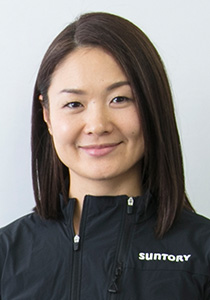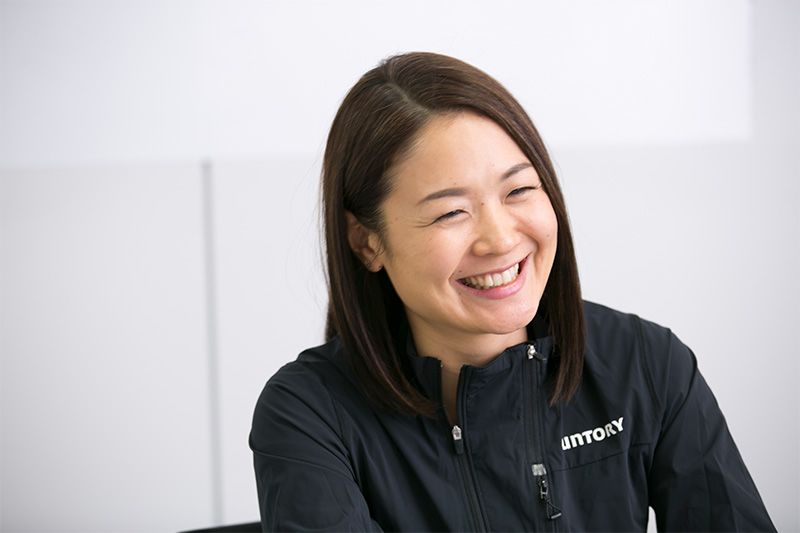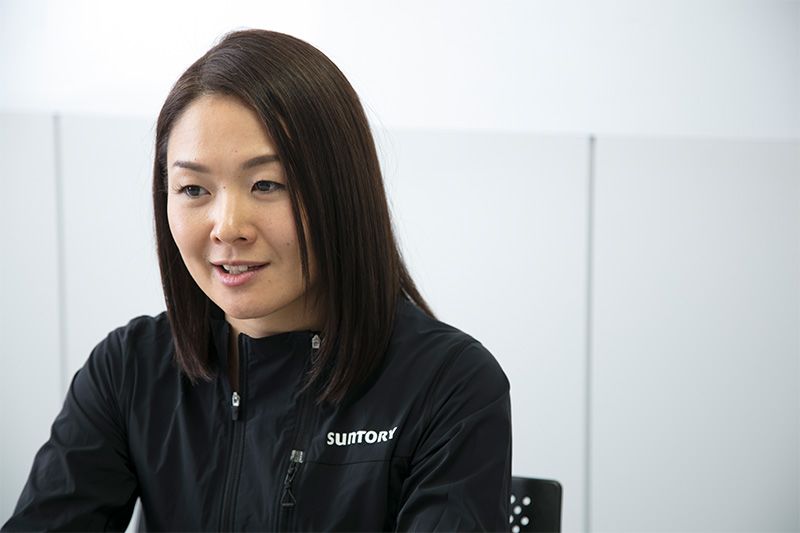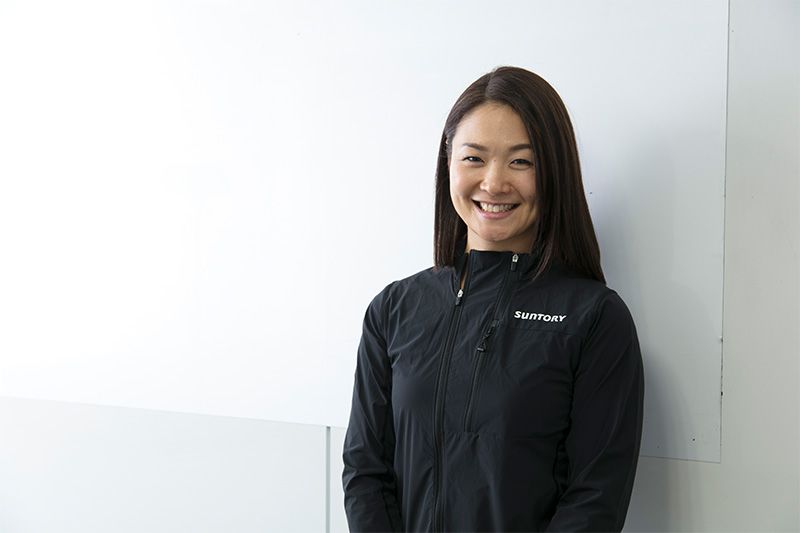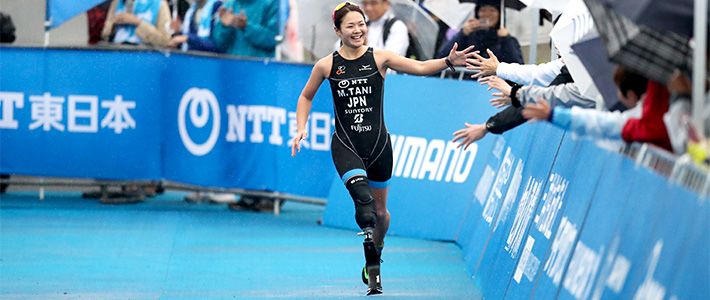
Paralympic Athletes, Up Close and Personal
Tani Mami: Iron Paralympian with a Heart of Gold
Sports Tokyo 2020 Society- English
- 日本語
- 简体字
- 繁體字
- Français
- Español
- العربية
- Русский
Striking Gold
Paratriathlon athlete Tani Mami’s smile is warm and infectious. “A lot of people tell me that they like the way I smile,” Tani says. “Maybe because I’ve gone through so many hardships, I can’t help feeling really thankful and happy about even the small, everyday things. I love the time I spend with friends, and the sight of flowers takes my breath away. I’m grateful for my daily meal and thrilled to be able to work out. I’m thankful for each and every moment, and perhaps that seeps through.”
Of all Paralympic events, the triathlon is without doubt the most grueling, requiring athletes to swim, bike, and run in a single race. Paratriathlon became an official event at the September 2016 Rio Games.
Tani was a winner of her very first paratriathlon World Championship race (class PT4 = moderate impairments), held in Rotterdam in September 2017. This was also Japan’s first-ever paratriathlon World Championship gold medal. One could easily imagine how desperate she must have been to protect her lead in the closing stretch, as she was still new to the sport. But when she crossed the finish line, panting and heaving, she was beaming with her trademark smile.
Her cheerful expression is a testament to the countless times she has roused herself up after fate saw fit to deprive her of hope time and again.
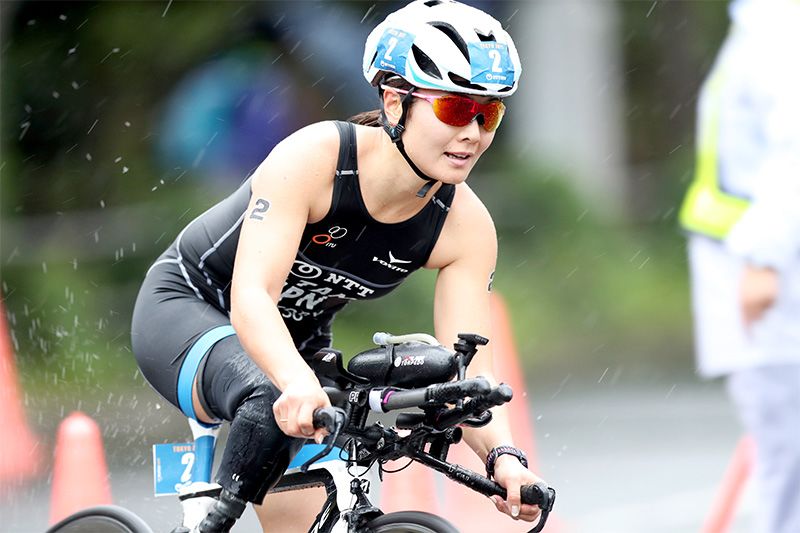 Tani competing in the October 2017 paratriathlon demonstration race at Odaiba Seaside Park. (Photo by Takemi Shūgo)
Tani competing in the October 2017 paratriathlon demonstration race at Odaiba Seaside Park. (Photo by Takemi Shūgo)
Cancer of the Bone
The first and the most debilitating of such experiences sneaked up on Tani during summer of her second year at Waseda University. She was blissfully enjoying her college life as a cheerleader when she felt a sharp pain in her right ankle. She hoped massage and electrotherapy would ease the pain, but it only got worse. When it became too painful even to walk, she went to a local orthopedist. The doctor could not believe what X-rays showed: it was like Tani’s bones were melting away.
She was referred to the National Cancer Center Hospital in Tsukiji, Tokyo, where she was diagnosed with osteosarcoma, a cancer of the bone. She was hospitalized right away and underwent chemotherapy, whose side-effects included nausea, vomiting, and fatigue. This was more than she could bear, for she had always been physically active—swimming as a grade schooler, competing in track and field in middle and high school, and cheerleading during college. In just a month, she lost her hair, eyebrows, and eyelashes.
She would soon be hit with even grimmer news, though: her right leg needed to be amputated below the knee. She pleaded with her doctor: “There must be other ways of treating the tumor. Shouldn’t surgery be the option of very last resort?”
“I’m afraid that if you don’t amputate it now, you’ll only have a year and a half to live,” the doctor replied.
“But what if your own daughter were in my shoes? Would you choose surgery for her?”
“I wouldn’t hesitate for a moment,” he said firmly. “Life is more important.”
She sank back. The physician was right. She would go through with the amputation. As she entered the operating room, she waved to her parents with a big smile.
Her mother was in tears and wondered how her daughter could be smiling at a time like this. “By then, I had already shed enough tears,” Tani recalls. “My eyes were now dry, and I was emotionally ready for the amputation.”
But the reality of losing a limb took a little longer to sink in. “I often wondered while undergoing treatment why this was happening to me,” she says. She felt alone and deserted.
“I was fighting with myself, with my own weaknesses. I needed something to take my mind off of negative thoughts, so I began attending sports classes for disabled people, where my instructor recommended I try track and field.
Personal Best
Tani joined Suntory Holdings upon graduating from Waseda University in 2004 and continued to train. In just two years after her amputation, she had gained a place on the national Paralympic team to compete in the long jump in London 2012. She was selected again to participate in the 2008 Games in Beijing and was training for the 2012 Games in London when the Tōhoku earthquake and tsunami devastated her hometown of Kesennuma in Iwate Prefecture in March 2011.
The waves washed away the house in which she grew up, along with—it seemed—her very identity. With the support of her employer, she focused her energies on assisting those displaced by the disaster and helping decimated areas recover and rebuild. People in the community reciprocated her efforts with words of encouragement for the upcoming Paralympic Games.
“It then dawned on me that the best way of lifting people’s hearts in my hometown would be to perform well in London. That’s when I started devoting more time again to training.”
She scored her personal best during the London Games and won the bronze the following year at the World Championships in Lyon.
A Winning Bid
How does Tani manage to balance a full-time job with appearances at three Paralympic Games, commitments to parasport promotion, and assistance for Tōhoku’s recovery?
“My energy level is consistently pretty high, whether I’m on the job or off,” Tani explains. “So I don’t think in terms of work-life balance. For me, work and life aren’t two separate things; they flow together seamlessly. You might call it ‘work-life integration.’”
She was Tokyo’s opening presenter at the September 2013 general assembly of the International Olympic Committee, held in Buenos Aires to choose the host city for the 2020 Games. In a moving speech in support of Tokyo’s bid, she credited the “power of sport” for helping her recover from cancer and the 2011 earthquake-tsunami.
“After I lost my leg, promoting parasports and teaching people about the value of life became my life’s mission. I had no role model, though, so I was always groping in the dark, looking for the right approach through trial and error. I was really grateful for the opportunity to speak at the IOC general assembly on Tokyo’s behalf because it really affirmed everything that I had been doing. I felt my burden grow lighter after that.”
A Supportive Environment
In 2014, Tani married an advertising agency employee and gave birth to a son the following year. Balancing work and childrearing responsibilities is no easy task, even without a disability, but in 2017 she announced that she would seek a place on the national team for the Tokyo Games not in the long jump but the triathlon—a decision requiring even closer “work-life integration.”
For Tani, though, this was a natural choice. “The triathlon is a far more demanding event, but I’m more comfortable with it than the long jump. Training for the long jump required that I commute to an athletic field, but with the triathlon I can go to the local swimming school, and I can bike or run anytime and anywhere I like. And rather than training alone, there are plenty of people around to swim, bike, or run with me, so there’s greater moral support.”
Her subsequent performance is proof that she made the right choice. She has won every race she has entered, including two World Paratriathlon Series events and the World Championships in Rotterdam in 2017. Her daily life, though, revolves around her two-year-old son. On weekdays, she trains in the early morning before he wakes up, and she is accompanied by her husband and child on a bicycle during her weekend jogs.
“I get an adrenaline boost whenever my son cheers me on. Since I can’t take him along when competing overseas, I try to make it up to him by giving him a lot of attention when at home. Having time constraints, though, has actually helped me to focus more during my workouts.
The understanding and support of her husband are also crucial to enabling Tani to juggle her many responsibilities. When he is too busy, though, Tani is able to turn to fellow moms in the neighborhood to pick up her child from the nursery. Neighbors have offered to help with meals, not just for her son but for the whole family. Her devotion to work, athletic competition, and family appears to have generated closer ties within her community
“Even before his second birthday, my son, who’s seen me remove my prosthetic leg when I go to bed, would often bring it to me in the morning, without my having to say a word. He seems very comfortable at gatherings of people from different countries, and I hope he’ll continue to have an open mind and not have any prejudices toward others.”
(Originally written in Japanese and published on January 19, 2018. Photographs by Kawamoto Seiya except where noted. Banner photo: Tani is congratulated by fans after finishing the October 2017 paratriathlon demonstration race at Odaiba Seaside Park, where the event will be held in 2020. ©Takemi Shūgo)
